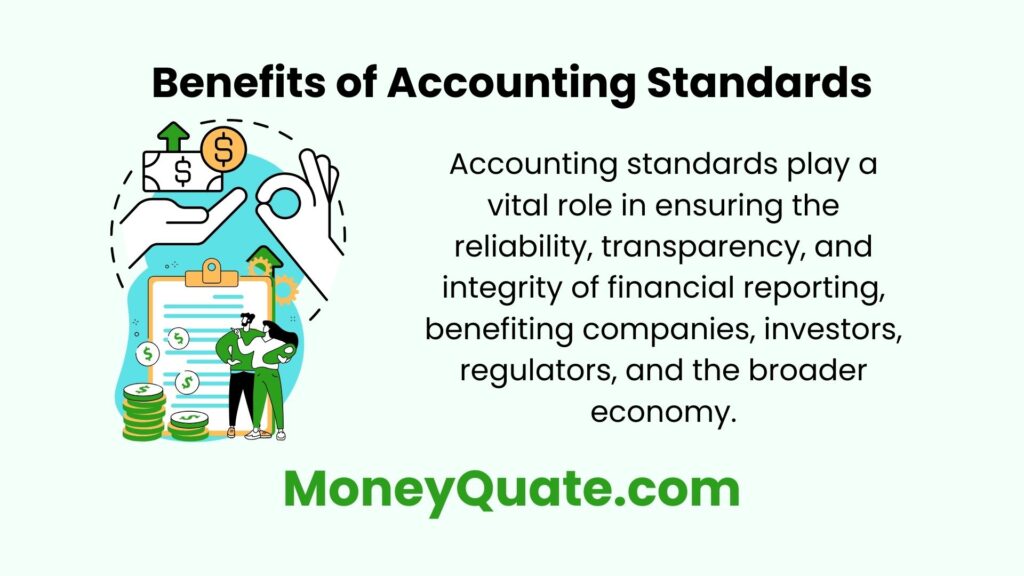Ever buy a gadget with instructions that look like ancient riddles? Yikes! Accounting standards are like clear instruction manuals for companies’ finances.
They ensure everyone uses the same language, making financial statements easy to understand and compare. But that’s just the tip of the iceberg!
As accountants, we rely on these standards to create financial statements that are crystal clear, consistent, and trustworthy.

Contents
Let’s see why accounting standards are the MVPs of financial reporting
Benefit #1: Comparing Companies Like Apples to Apples (Not Apples to Zebras!)
Financial statements are like company report cards. Investors use them to decide where to invest their hard-earned cash.
Accounting standards make these report cards consistent, allowing for fair comparisons between companies, even if they’re in totally different businesses.
Here’s the win:
Easy Decisions: Imagine comparing a shoe store to a video game developer.
Without standards, it’s like comparing apples to…well, something completely different!
Standards ensure both companies use the same methods to report their finances, making it easier for investors to see which one might be a better investment.
Benefit #2: Building Trust Like a Brick Wall (No Surprises Here!)
Financial statements should be like open books, not locked treasure chests.
Accounting standards promote transparency by requiring companies to report their finances in a clear and consistent way.
This builds trust with investors and others who rely on this information to make important decisions.
No Hidden Numbers: Imagine investing in a company that suddenly reveals a ton of hidden debt.
Not cool! Standards help prevent this by requiring companies to disclose all relevant financial information upfront.
This transparency builds trust and keeps the investment environment healthy.
Benefit #3: Less Room for Errors, More Room for Confidence
Financial statements can be complex, and mistakes can happen.
Accounting standards act as a safety net by establishing clear rules for recording and reporting financial activities.
This reduces the risk of errors and makes financial statements more reliable.
Minimize Mistakes: Imagine a recipe with missing steps.
Accounting standards are like detailed instructions that help companies avoid errors in their financial statements.
This ensures the information you’re using to make decisions is accurate and trustworthy.
Real-World Examples of The Benefits of The Accounting Standards
Let’s see how standards play out in everyday accounting:
- Valuing Stuff: Two companies sell electronics. One values unsold TVs at the original price, while the other uses a discounted sale price. This makes it hard to compare their financial health. Accounting standards establish a consistent way to value inventory, creating a fairer comparison.
- Earning Money: When does a clothing store “earn” money – when they sell a shirt or when they collect the cash from the customer? Accounting standards provide clear guidelines on recognizing revenue, ensuring a clear picture of the store’s financial performance.
Conclusion
Accounting standards might seem technical, but they play a critical role in ensuring fair, transparent, and reliable financial reporting.
They’re the silent heroes that empower informed investment decisions and promote a healthy financial system.
Think of them like the lines on a football field – they might not get all the attention, but they ensure a fair and reliable game!